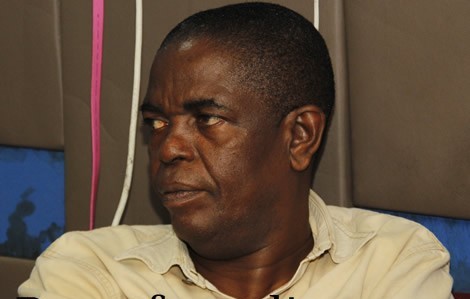 Kwesi Pratt, Editor-in-Chief of the Insight newspaper, has kicked against any plan by government to privatize the power distribution system of the Electricity Company of Ghana (ECG).
Kwesi Pratt, Editor-in-Chief of the Insight newspaper, has kicked against any plan by government to privatize the power distribution system of the Electricity Company of Ghana (ECG).
Addressing the issue on Peace FM’s “Kokrokoo”, Kwesi Pratt raised the roof over attempts to sell off shares of the company to a private energy provider for the purposes of streamlining the energy sector.
Reports government is considering its options towards the privatisation of the Electricity Company of Ghana (ECG) by the middle of 2015, as part of its solutions to the recurrent power crises.
Mr Frank Ocran, Chairman of the Stakeholders Consultation Committee on Energy, who announced this in Accra, on 17th December, 2014, said the move follows Ghana’s qualification to receive $500 million under the Compact Two of the Millennium Development Account to help turn the energy sector around.
Mr Ocran was addressing a meeting the stakeholders held for the media to solicit views on the two options the government intended to choose from: concession and partial privatisation.
Under the Concession, the state would enter into a long-term contract: 20 – 30 years with a private partner, where the private partner would have the exclusive right to operate, maintain and carry out investments in ECG for a defined number of years. The private partner would have the responsibility for the operation and maintenance of all assets and investment during the period.
The state would retain full ownership of ECG as the asset holding company; at the end of the concession period, control of ECG reverts to the state unless the government decides to extend or re-tender the concession.
Partial privatization would involve the sale of ECG’s shares to a strategic investor with the proven technical, financial capacity and track record in utilities similar in size to ECG to carry out electricity distribution and supply activities.
But Mr. Pratt strongly held that privatizing ECG is not the panacea to the incessant power cuts in the country, and rather called on the authorities to set their priorities right to ameliorate the situation.
He indicated that the principles that guided him and his pressure group to demonstrate against the privatization of Ghana Telecom to Vodafone and other organizations under the erstwhile Kufour administration should not be undermined.
“The same principles which led to the demonstrations against privatization of Ghana Telecom; which led to demonstrations against privatization of Agric bank should also guide us in the electricity sector,” he stressed.
Mr. Pratt therefore proposed that it would rather be prudent for the government to generate electricity at affordable prices.
“The responsibility of government is not just to produce power but also to produce power at affordable rate…The other leg of the problem is to produce it at affordable rate; at minimum rate. So, we won’t allow it (privatization) if it comes at any price,” Pratt stated.